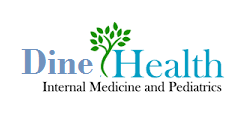Focusing on preventive treatment is essential as it positively impacts health and significantly reduces overall medical care costs. Patients who visit health centers routinely, either symptomatic or asymptomatic, are evaluated. Catering for each patient’s needs for health is critical in promoting disease prevention.
Key Objectives as Opportunities for Applying One Health Approach
To Inform and Empower the Health Sector to Reach the Communities
Achieve this via empowering health personnel to communicate urgent threats once they are identified. Informing solutions through the integration of this method is crucial. Constant utilization of clear messaging on action promotes understanding and consistent uptake across sectors.
To Develop an Innovative Partnership to Improve Health Sector Outcomes
Mobilization of multidisciplinary research, training, and practice initiatives improves health care and integration at the community level.
Identify critical competencies for health care professionals and entry points for interdisciplinary training to problem-solving approaches.
Leveraging personnel, information, and infrastructural resources from environmental and animal sectors to promote implementation, surge capacity, and enhance risk monitoring
Apply joint operations to link faculty and students in various departments. Mechanisms such as interdisciplinary events and joint degrees among different schools are crucial. Achieve this through research, scenario-based cases, or practicum exchanges across veterinary, medical, and public health schools.
To Create Information Flow Pathways in Health Practice And Clinical Medicine
Open up communication channels to enhance sharing of information. Knowledge is crucial to the immediate sphere of medical personnel and serves its full utility in global health. Design the information channels to be maintained and operationalized with workflow needs for use by clinicians.
Position channels to harness front-line observations of veterinarians, clinicians, and other health professionals. Such tools are necessary and act as a guide to respond and report appropriately.
To Improve a One Health Approach to Enable Resource Sharing In Medical Education And Overall Health
Integrate relevant health care insights on epidemiological and ecological factors. Shape disease risks into tools to be used by medical practitioners.
Post health information on school syllabi, websites, or via lectures
Increase access to existing guidance tools and data resources and make them available through community practice.
Enlist school librarians to guide students and faculty on using healthcare resources.
Innovate assessment and pedagogical methods to support interdisciplinary student teams.
One Health Care Approaches
Teaching Of Health Care Concepts to Rural Health Care Providers
The environment and animals impact significantly on human health. Creating awareness through training of rural medical personnel helps detect zoonotic diseases before they spread to the public. Professionals working in these areas are trained on public health courses to equip them with the necessary knowledge and skills to manage human, animal, and environmental health issues. Incorporating a One Health concept in the curriculum for medical professionals is crucial.
Educating Public Health and Medical Workforce
One Health approach necessitates data and information exchange and supports public health research across various disciplines and sectors. Implementing the functional medicine Denver-based approach helps bring awareness to the general population and equips partners with adequate support to achieve the laid down objectives. A partnership between state and local public health and animal health agencies is necessary.
One Health approach integrates and involves various experts to develop innovative solutions and increase the impact of health care. Integrated systems of health are added to multiple medical care courses and help address scientific literacy, diversity, accessibility, and inclusion.




